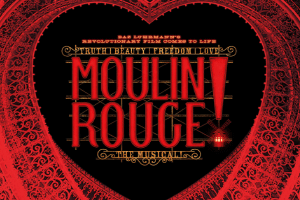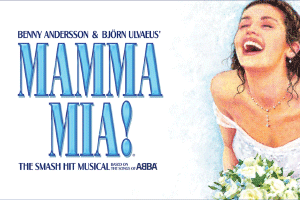
It is true. Seven of the 39 West End theatres are currently home to jukebox musicals.
Recently, there was a post on social media pointing out this fact and calling out for new writing.
But when, and why, did “jukebox” become a dirty word for theatre aficionados?
Jukebox musicals – shows that predominantly use pre-existing and well-known songs as opposed to original music – are typically a safe bet commercially. The numbers themselves do much of the heavy lifting in terms of selling the production. In this economy, it simply cannot be a bad thing. It isn’t just bums on seats, it’s what the typical theatre-goer spends on their outing in restaurants, cafes, bars, and shops, and on transport and hotels. Plus, what they take away from their night in terms of emotional experience and word-of-mouth reviews.
For many, jukebox musicals can act as a gateway for new theatre fans. As we already discussed with Olivier Award winner Maimuna Memon, so long as you like music, there’s a musical out there for you. There’s a comfort that cannot be understated with jukebox musicals.
If we look at the aforementioned seven currently running in the West End, we have the Olivier Award-winning Titanique, which uses the songs of Céline Dion (and others) for a raucous retelling of the infamous sinking. Meanwhile, Tina – The Tina Turner Musical documents the rise of the Queen of Rock ‘n’ Roll, and MJ The Musical looks into Michael Jackson’s preparation for the Dangerous tour.
Newcomer Just For One Day delves behind the scenes of Live Aid, while Choir of Man tenderly examines pub culture. Moulin Rouge! and Mamma Mia! both have massive movie musical IPs behind them, though the Abba-tastic feel-good comedy did not originally. Up until recently, the big-screen adaptation held the title as highest highest-grossing film version of a stage production, only eclipsed by Wicked.
There are several reasons for the popularity of jukebox musicals and why they are such crowdpleasers: they’re familiar to people, in terms of numbers and characters, and could be considered an attractive and safe bet. For fans of the artists, too, there’s a chance to learn more in a bio-musical or to hear new and fresh orchestrations or arrangements.
Not every jukebox has the same intention. & Juliet takes the huge catalogue of Max Martin to reimagine a different, and empowering, ending to Shakespeare’s tragedy. It’s worlds apart from Conor McPherson’s Girl From the North Country (returning once more to London), which uses Bob Dylan’s tunes to follow wayward souls who happen upon each other in a 1930s American guesthouse. Both, however, add new context to the music.
In a theatre world that regularly mourns the lack of new writing, jukebox musicals cannot be the one and only scapegoat. In recent years, and even months, new writing has been seen in jukebox musicals – just take the magnificently creative staging of A Knight’s Tale, and the record-breaking Here And Now, for example. Titanique is a heavily sought-after New York transfer playing to full houses, while Just For One Day received high praise during its Old Vic premiere, and has an award-winning writer and director duo, John O’Farrell and Luke Sheppard attached.
In terms of plays, and to a lesser degree, musicals, there are classics seemingly on rotation – within months of each other, we had two takes on Oedipus, and we’re not short on reimaginings of the Bard, with a recent production making quite the ado. It’s likely for reasons I’ve perhaps highlighted above: safety, familiarity, and comfort. Though there’s no denying that creatives are going above and beyond to break boundaries in new adaptations.
Many long-running titles have occupied prime West End real estate for up to 40 years, playing consistently to full houses and acting similarly to the jukebox musical in their contribution to the West End ecosystem. They’re the pinnacles of British theatre, serving not only theatre fans from across the world but also providing long-term and secure employment to hundreds.
It goes without saying that there should be a place for new work to premiere and debut, and we endeavour to be there, reporting on it. Not to brag, but we’ve been there since the start for mega-musicals Six, Operation Mincemeat, and The Curious Case of Benjamin Button. These major, original musicals have both awards and public adoration, bringing in big audiences and a new appreciation for what musical theatre can be.
Perhaps the bigger question is considering why the West End is held as the pinnacle of theatre in London, or, the UK, for that matter. The West End is inherently reliant on the tourist market, which invariably means that jukebox musicals gravitate towards it. But new writing takes to the stage each and every month, not only across London, but up and down the country. And yes, some of the best new writing happens to take the form of a jukebox musical.





















